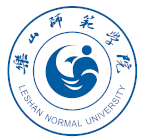Home > News > International Symposium for Cestode Zoonosis Control, Chengdu
International Symposium for Cestode Zoonosis Control, Chengdu
October 24, 2017


After Shanghai 2012 (see Parasitology special issue here), this symposium held in Chengdu was proposed under the framework of the “three year action plan (2015-2017)”. The aims were to update the epidemic status of echinococcosis and taeniasis/cysticercosis, to share control and elimination strategies at a global level and to exchange about advances on diagnostic, treatment and monitoring. This took place in the scope of Sustainable Development Goals (SDG) of the United Nations [1] on Neglected Tropical Diseases, and the Belt and Road initiative (一带一路), with the support of the WHO collaborating center for prevention of tropical disease (Shanghai CDC) and the WHO collaborating center for prevention and care management of echinococcosis (Xinjiang key lab of echinococcosis).
 A “Chengdu declaration” was signed to engage participants and promote capacity building for research and development in order to enable achievement of the control targets for echinococcosis and Taenia solium cysticercosis (Read more at WHO...).
A “Chengdu declaration” was signed to engage participants and promote capacity building for research and development in order to enable achievement of the control targets for echinococcosis and Taenia solium cysticercosis (Read more at WHO...).
 Additionnally, a Central Asia medical forum "Zoonosis Prevention and Control in CAREC [2] countries” was organized by the Xinjiang key lab of echinococcosis and the CDC Shanghai on the 17th of November.
Additionnally, a Central Asia medical forum "Zoonosis Prevention and Control in CAREC [2] countries” was organized by the Xinjiang key lab of echinococcosis and the CDC Shanghai on the 17th of November.
A number of GDRI EHEDE members met and contributed, among them:
- Akira Ito, Asahikawa Medical University, Japan
- Christopher Marston, Edge Hill University, UK
- Li Li - 李丽, Yunnan University of Finance and Economics, China
- Li TiaoYing - 李调英, Sichuan CDC, China
- Patrick Giraudoux, University of Franche-Comté/CNRS and Yunnan University of Finance and Economics, France/China
- Wang Qian - 王谦, Sichuan CDC, China
- Wen Hao - 温浩, Xinjiang Medical University, First teaching hospital, China
- Zhang WenBao 张文宝, Xinjiang Medical University, First teaching hospital, China
The importance of understanding the ecology of transmission processes to improve surveillance and prevention was presented and discussed as well as the importance of multi-sectorial and multi-disciplinary approach of control in multi-functional eco-systems, one of the key concerns of the GDRI EHEDE. Those issues were included in the "Chengdu declaration".
Pr. Patrick Giraudoux, Pr. Li Li and Dr Christopher Marston were then driven to visit the AE and CE endemicity areas of the Tibetan plateau close to Kangding (GaBa xian and Yala shan areas) for a field assessment.

Footnotes
[1] Transforming our world: the 2030 agenda for Sustainable Development. United Nations. 2015. http://www.un.org/ga/search/view_doc.asp?symbol=A/70/L.1&Lang=E
[2] Central Asia Region EChinococcosis










